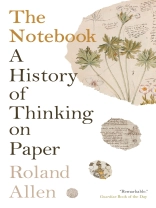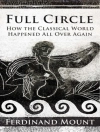A Globe 100 Best Book of 2024 • A New Yorker Best Book of 2024 • A Kirkus Most Anticipated Book of Fall 2024
The first history of the notebook, a simple invention that changed the way the world thinks.
We see notebooks everywhere we go. But where did these indispensable implements come from? How did they revolutionize our lives? And how can using a notebook help change the way you think? In this wide-ranging history, Roland Allen reveals how the notebook became our most dependable and versatile tool for creative thinking. He tells the notebook stories of Leonardo and Frida Kahlo, Isaac Newton and Marie Curie, and writers from Chaucer to Henry James; shows how Darwin developed his theory of evolution in tiny pocket books and Agatha Christie plotted a hundred murders in scrappy exercise books; and introduces a host of cooks, kings, sailors, fishermen, musicians, engineers, politicians, adventurers, and mathematicians, all of whom used their notebooks as a space to think—and in doing so, shaped the modern world.
In an age of AI and digital overload, the humble notebook is more relevant than ever. Allen shows how bullet points can combat ADHD, journals can ease PTSD, and patient diaries soften the trauma of reawakening from coma. The everyday act of moving a pen across paper, he finds, can have profound consequences, changing the way we think and feel: making us more creative, more productive—and maybe even happier.
Cuprins
Introduction
Chapter 1: Before notebooks
Chapter 2: Red book, white book, cloth book
Chapter 3: Slight strokes in a little book
Chapter 4: Ricordi, ricordanzi, zibaldoni
Chapter 5: Pepper in Alexandria
Chapter 6: Wicked wives and and mouths stopped with wool
Chapter 7: The long life of LHD 244
Chapter 8: ‘Alas, this will never get anything done…’
Chapter 9: O the pains and labour to record what other people have said!
Chapter 10: From one mouth to the other runs East and West
Chapter 11: King of the herring
Chapter 12: A dull Dutch fashion
Chapter 13: Several gems
Chapter 14: ‘Let him not stay long’
Chapter 15: The Waste Book
Chapter 16: A tale of two notebooks
Chapter 17: ‘But 18 pence in money; and a table-book’
Chapter 18: Albetrosses
Chapter 19: ‘I think…’
Chapter 20: One way to immortality
Chapter 21: ‘You’re spot on’
Chapter 22: ‘Yes, better if dentist is dead’
Chapter 23: Preserving and Coockery
Chapter 24: Express yourself
Chapter 25: Blue, green, red, yellow
Chapter 26: Non-trivial
Chapter 27: Attention deficit
Chapter 28: In search of lost time
Chapter 29: Nothing on this earth betrays our own karakter so
Chapter 30: A different part of the brain
Conclusion: Otto carries a notebook
Notes and references
Image credits
Acknowledgements
Index
Despre autor
Roland Allen lives in Brighton. He studied at Manchester University and works in book (and notebook) publishing. He has written books on bicycles and bread, has kept a diary for decades, and enjoys stationery a little too much.












